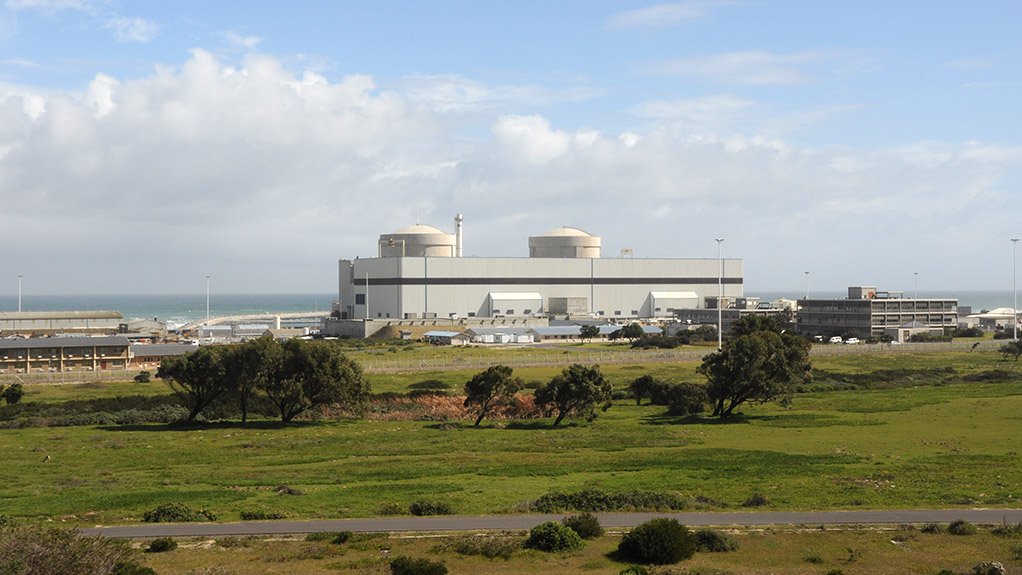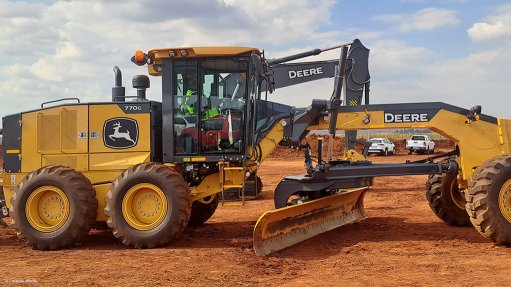Is a new nuclear programme for SA affordable?
South Africa may have difficulty in financing new nuclear power plants (NPPs), an Academy of Science of South Africa symposium in Pretoria has been warned. The concern was expressed by University of Cape Town Energy Research Centre director Professor Harald Winkler.
"Eskom has a R225-billion shortfall for its current build programme," he pointed out. "The government is providing R350-billion in debt guarantees. Total government debt is R1.4-trillion with a worsening debt-to-GDP [gross domestic product] ratio. Servicing the debt costs R115-billion. There is little room for further guarantees."
The nuclear companies that would supply the new NPPs could offer financing for the proposed new build programme. Russia has done so. But the issue then becomes the provisions of the contracts. What would South Africa be locked into?
This, in turn, raised the question of the transparency of a new NPP programme. Would the tender process be transparent? Would the process be run internally by Eskom, as was the case during the abortive Nuclear 1 project during 2008? Would the decisions be based on good technical analyses or on international political considerations (regarding relations with China, France, Japan, Russia, South Korea and the US)? "The process should be transparent," he affirmed.
The Energy Research Centre had estimated South Africa's energy demand at 341 TeraWatt hours (TWh) in 2030, in comparison to the 454 TWh forecast by the original Integrated Resources Plan 2010. Lower demand would mean no need for any new NPPs before 2040, at a probable price of $7 000/kW. Higher demand would allow new NPPs from 2029, at $5 000/kW. In both cases, the decision would have to be made ten years before.
He noted that, over the past decade, the cost of nuclear energy had increased. During the period 2003 to July 2013, the 34 reactors that had been started had taken an average of 9.4 years to complete. While coal had a lower capital expenditure than nuclear, it had higher operating costs. Renewables, like nuclear, required higher capital expenditure, but their operating expenditure was very low, as they essentially had no fuel cost.
"Both over- and user-build of power plants is expensive to the South African economy and society," affirmed Winkler. "It's risky to bet in demand projections. What we need is flexible planning."
Comments
Press Office
Announcements
What's On
Subscribe to improve your user experience...
Option 1 (equivalent of R125 a month):
Receive a weekly copy of Creamer Media's Engineering News & Mining Weekly magazine
(print copy for those in South Africa and e-magazine for those outside of South Africa)
Receive daily email newsletters
Access to full search results
Access archive of magazine back copies
Access to Projects in Progress
Access to ONE Research Report of your choice in PDF format
Option 2 (equivalent of R375 a month):
All benefits from Option 1
PLUS
Access to Creamer Media's Research Channel Africa for ALL Research Reports, in PDF format, on various industrial and mining sectors
including Electricity; Water; Energy Transition; Hydrogen; Roads, Rail and Ports; Coal; Gold; Platinum; Battery Metals; etc.
Already a subscriber?
Forgotten your password?
Receive weekly copy of Creamer Media's Engineering News & Mining Weekly magazine (print copy for those in South Africa and e-magazine for those outside of South Africa)
➕
Recieve daily email newsletters
➕
Access to full search results
➕
Access archive of magazine back copies
➕
Access to Projects in Progress
➕
Access to ONE Research Report of your choice in PDF format
RESEARCH CHANNEL AFRICA
R4500 (equivalent of R375 a month)
SUBSCRIBEAll benefits from Option 1
➕
Access to Creamer Media's Research Channel Africa for ALL Research Reports on various industrial and mining sectors, in PDF format, including on:
Electricity
➕
Water
➕
Energy Transition
➕
Hydrogen
➕
Roads, Rail and Ports
➕
Coal
➕
Gold
➕
Platinum
➕
Battery Metals
➕
etc.
Receive all benefits from Option 1 or Option 2 delivered to numerous people at your company
➕
Multiple User names and Passwords for simultaneous log-ins
➕
Intranet integration access to all in your organisation




















